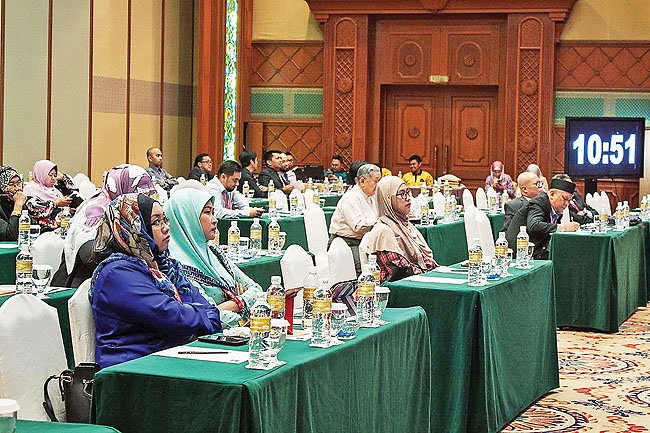THE topic of land development was discussed in one of the parallel sessions of the 14th Southeast Asia Survey Congress (SEASC) yesterday.
One of the presentations in the session pertained to application for development approval and was delivered by Faridah Hendriani binti Dr Haji Hisham and Hajah Siti Nor Ismah binti Haji Masri from the Authority for Building Control and Construction Industry (ABCi), Ministry of Development (MoD).
The presentation began with an introduction to ABCi, and it was explained that ABCi’s is the authority that carries out the Building Control Order 2014. ABCi’s role in development is to: ensure that proposed and constructed developments are in line with the requirements of relevant agencies and are in accordance with the Building Control Oder 2014 and building control regulations; as well as to ensure building safety is guaranteed and controlled.
Enforcement of the Building Control Order 2014 began on November 1, 2015, and it is enforced to ensure that duties and responsibilities of qualified persons in carrying out developments are clear. This is aimed at ensuring developments are at a satisfactory level.
According to the order, permission for all building works must be applied for at ABCi. Building works include construction, extension and building demolishing works; renovation, extension and restoration of buildings; preparation, extension or renovation to the use of air conditioning or related ventilation systems in a building; earthworks; and structural works/construction.
It was highlighted in the presentation that attaining approval is important to ensure that: the safety aspects of the building are guaranteed; the structural integrity of the building is guaranteed and safe; the development progress is organised; qualified persons and appointed contractors are registered and recognised by the MD; and to ensure that the development being constructed is at a satisfactory level to avoid future problems.

There are six steps in attaining development approval: obtain planning permission; obtain development approval; obtain permit to commence works; request inspection date; conduct inspection; and obtain occupation permit.
The parallel session also featured a presentation on land legislation in Brunei Darussalam, which was delivered by Amal Hayati binti Haji Junaidi from the Land Department.
The presentation touched on, among others, the Torrens system – a system that accurately and thoroughly records and registers land ownership rights. It was first introduced in South Australia in 1858 by Sir Robert Richard Torrens. Also discussed in the presentation were the details of land grants, which include physical information (district, village/mukim, etc), registration information as well as owner’s information.
In addition, the presentation featured excerpts from the land code pertaining to registered land owner’s rights.
Yesterday’s session was one of a number of parallel sessions that took place as part of the 14th SEASC, which will continue into its third and final day today with two more parallel sessions and a closing ceremony.
Article & Photos Courtesy of Borneo Bulletin